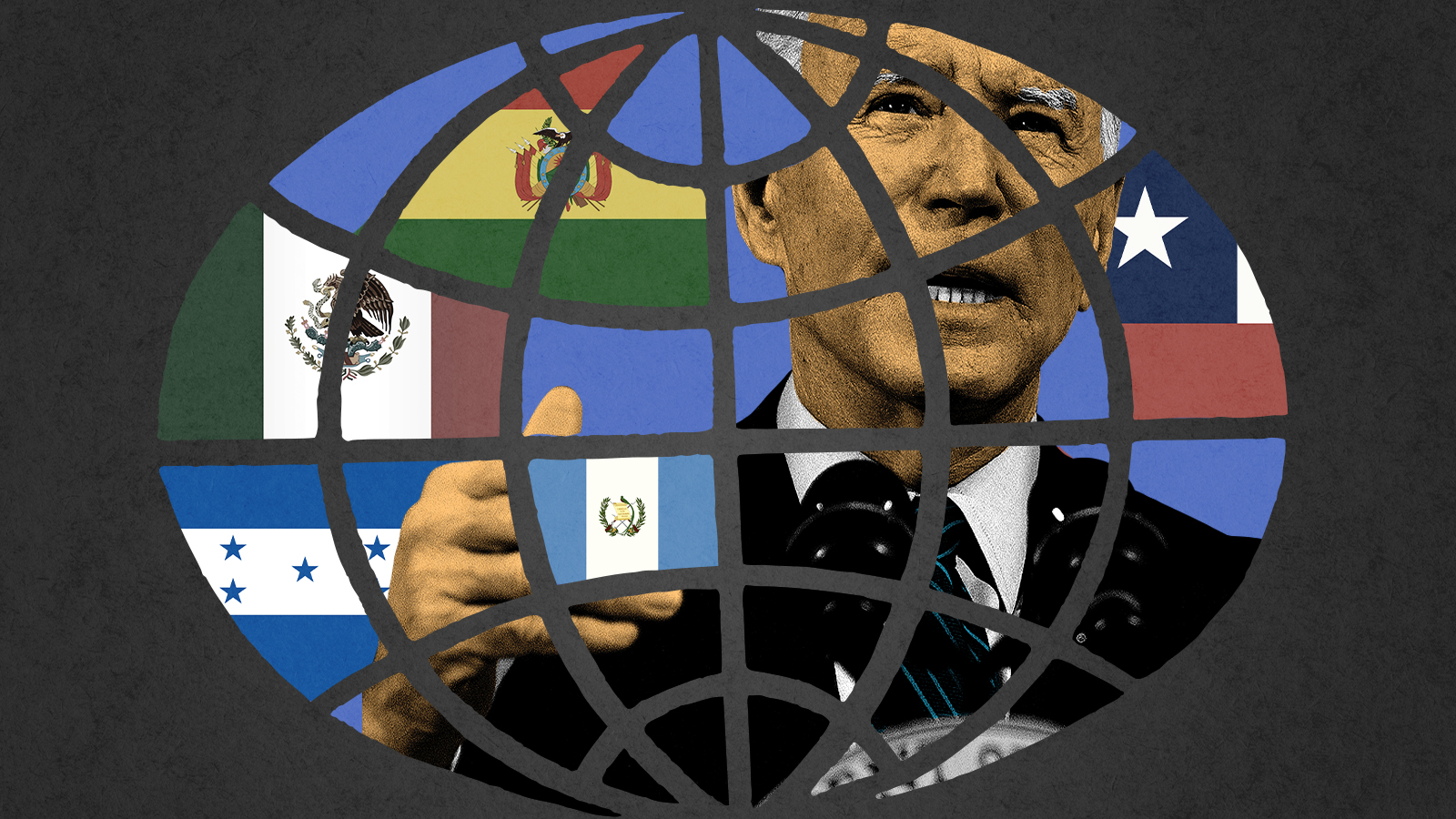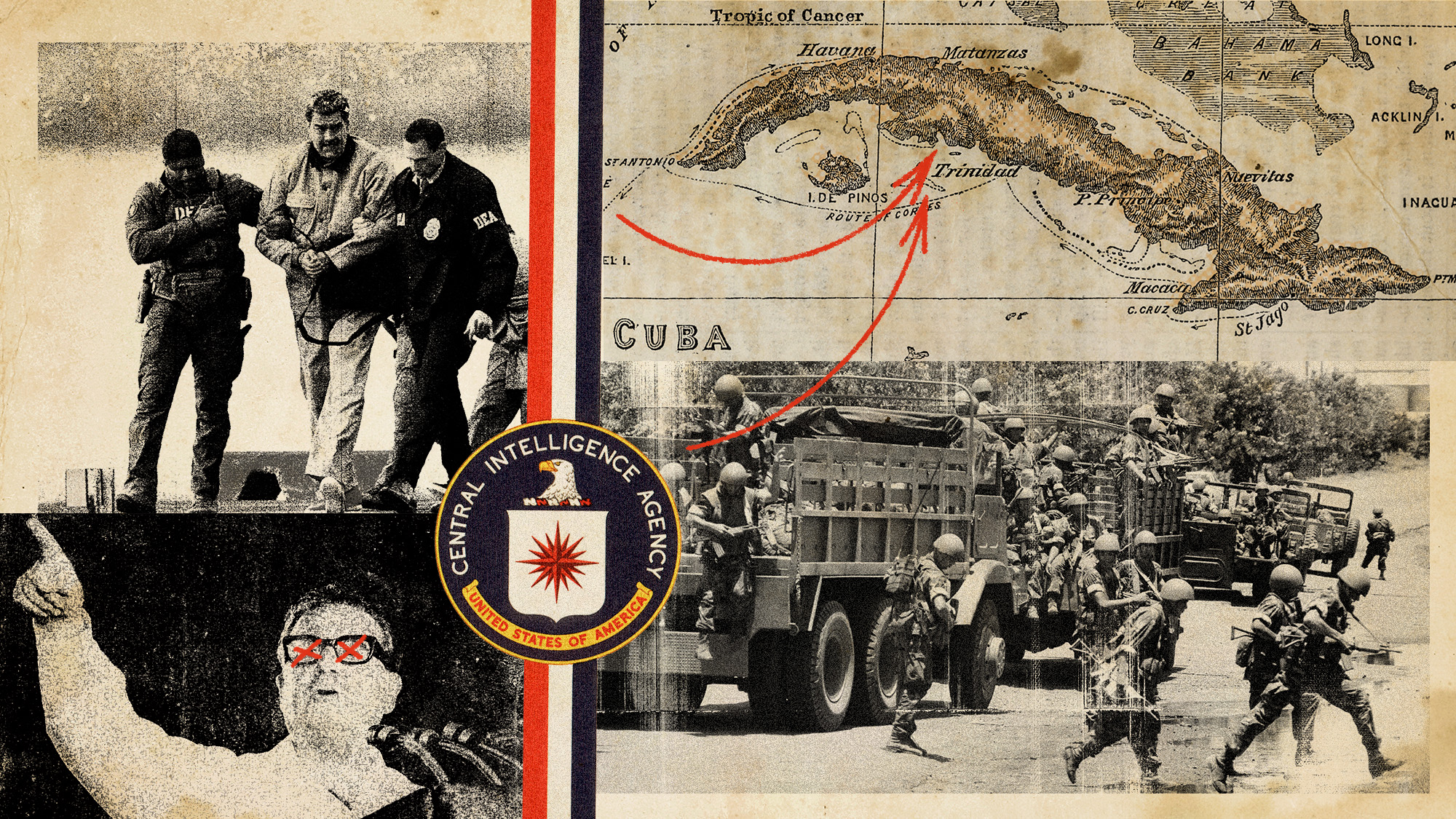The challenges facing the Summit of the Americas
How a routine summit of world leaders became surprisingly contentious


A free daily email with the biggest news stories of the day – and the best features from TheWeek.com
You are now subscribed
Your newsletter sign-up was successful
The U.S. will host the Ninth Summit of the Americas from June 6 to June 10 in Los Angeles, where leaders from the Western hemisphere will come together following a pandemic-related delay for the first time since 2018. Here's everything you need to know:
What is the Summit of the Americas?
Founded in 1994, the Summit of the Americas — organized by the Organization of American States and held roughly every three to four years — is the only hemispheric meeting of leaders from North, South, and Central America, and "serves as the most important forum" to address the region's "shared challenges and opportunities," per the U.S. State Department. The 2022 summit marks the first time the U.S. has hosted the event since the inaugural meeting in Miami in 1994.
In the past, such summits — which afford Latin American leaders one of their only opportunities to get important face time with the president of the United States and the prime minister of Canada, per the Latin America in Focus podcast — have launched trade, democracy, environment, education, social, economic, and anti-corruption efforts, the Americas Society/Council of the Americas notes. This year, the summit is themed around "Building a Sustainable, Resilient, and Equitable Future," and will focus on four main priority areas: "curbing record migration, boosting economic growth, combating climate change and bolstering recovery from the COVID-19 pandemic," the Los Angeles Times summarizes.
The Week
Escape your echo chamber. Get the facts behind the news, plus analysis from multiple perspectives.

Sign up for The Week's Free Newsletters
From our morning news briefing to a weekly Good News Newsletter, get the best of The Week delivered directly to your inbox.
From our morning news briefing to a weekly Good News Newsletter, get the best of The Week delivered directly to your inbox.
So, who's going?
That question is possibly the most contentious of the summit thus far, considering invitations were only recently sent out and notably excluded Venezuela, Cuba, and Nicaragua. The U.S. has said the omission is thanks to the countries' autocratic governments, but all three have been invited before, AS/COA's Senior Director Steve Liston told Latin America in Focus. And importantly, writes John Kirk, professor emeritus of Latin American studies at Dalhousie University in Canada, for Al Jazeera, it's not as though the other nations that were invited are "paragons" of democratic values — in Mexico, for example, a slew of journalists have been murdered this year alone, Kirk pointed out.
In protest of the exclusions, some Latin American leaders have threatened to boycott the summit unless the U.S. invites every country in the hemisphere (as the host, the U.S. controls the guest list). Mexican President Andres Manuel Lopez Obrador, for instance, has said he won't confirm his attendance until he knows all nations received an invitation. Bolivia, Chile, Honduras, and most of the Caribbean have also threatened to pull what would be an "embarrassing" summit snub. The president of Guatemala previously said he would be absent from the meeting, though perhaps he'll send a delegate in his place.
However, Venezuela's Juan Guaidó, who the U.S. recognizes as the nation's leader over Nicolás Maduro, is reportedly a confirmed attendee, per the Council on Foreign Relations. Brazil's Jair Bolsonaro will also reportedly be making an appearance,
What challenges does the summit face?
Aside from the whole invitee and boycott debacle, the summit has taken some heat for its rather messy appearance and last-minute planning — an approach not exactly in keeping with what administration officials had previously described as a "top-priority event for relations in the United States' own neighborhood," CNN summarizes. And then, well, there's just everything else that's been going on.
A free daily email with the biggest news stories of the day – and the best features from TheWeek.com
"We've had an election, a new president, a pandemic, all our own domestic issues, as well as a lot of regional issues that have made it very difficult to reach consensus and to do what is normally a two to three-year process of negotiation on what should be coming out of the summit," AS/COA's Liston told Latin America in Focus.
The meeting also arrives as the region faces a multitude of key challenges, like the ongoing COVID-19 pandemic, migration and security, climate change, and political polarization, writes CFR.
What should hemisphere leaders hope to achieve?
Liston said he'd love to see attendees make a "commitment to moving forward on the things that are going to make our hemisphere succeed," like readying healthcare systems for the next pandemic, or ensuring trade and investment on new and key economic issues. And not just that — even if meaningful commitments are made, Liston said he hopes leaders introduce a process to follow up and make those promises a reality.
What do critics think of the event?
"Since its inception, the meeting has failed to deliver," former Obama administration official Dan Restrepo wrote recently for the Los Angeles Times, arguing the summit to be a "fatally flawed forum that doesn't serve its purpose and limits our country's focused attention on its closest neighbors." Rather, Restrepo posits, Biden should opt out of the summit and instead "propose separate regional meetings with the leaders of the countries of Central America, the Caribbean and South America, on a rotating annual basis."
While writing for Al Jazeera, John Kirk also criticized the upcoming event as more of a "summit of regional U.S. allies," considering the omissions in the guest list. "The U.S. decision to pick and choose, rather than host a genuine Summit of the Americas, is unfortunate," Kirk writes. "What is now shaping up is a Summit of U.S. Regional Friends, a lost opportunity for Washington to deal honestly with major regional challenges."
Brigid Kennedy worked at The Week from 2021 to 2023 as a staff writer, junior editor and then story editor, with an interest in U.S. politics, the economy and the music industry.
-
 6 of the world’s most accessible destinations
6 of the world’s most accessible destinationsThe Week Recommends Experience all of Berlin, Singapore and Sydney
-
 How the FCC’s ‘equal time’ rule works
How the FCC’s ‘equal time’ rule worksIn the Spotlight The law is at the heart of the Colbert-CBS conflict
-
 What is the endgame in the DHS shutdown?
What is the endgame in the DHS shutdown?Today’s Big Question Democrats want to rein in ICE’s immigration crackdown
-
 ‘The mark’s significance is psychological, if that’
‘The mark’s significance is psychological, if that’Instant Opinion Opinion, comment and editorials of the day
-
 A running list of the international figures Donald Trump has pardoned
A running list of the international figures Donald Trump has pardonedin depth The president has grown bolder in flexing executive clemency powers beyond national borders
-
 A running list of US interventions in Latin America and the Caribbean after World War II
A running list of US interventions in Latin America and the Caribbean after World War IIin depth Nicolás Maduro isn’t the first regional leader to be toppled directly or indirectly by the US
-
 The billionaires’ wealth tax: a catastrophe for California?
The billionaires’ wealth tax: a catastrophe for California?Talking Point Peter Thiel and Larry Page preparing to change state residency
-
 Bari Weiss’ ‘60 Minutes’ scandal is about more than one report
Bari Weiss’ ‘60 Minutes’ scandal is about more than one reportIN THE SPOTLIGHT By blocking an approved segment on a controversial prison holding US deportees in El Salvador, the editor-in-chief of CBS News has become the main story
-
 Are Donald Trump’s peace deals unraveling?
Are Donald Trump’s peace deals unraveling?Today’s Big Question Violence flares where the president claimed success
-
 Has Zohran Mamdani shown the Democrats how to win again?
Has Zohran Mamdani shown the Democrats how to win again?Today’s Big Question New York City mayoral election touted as victory for left-wing populists but moderate centrist wins elsewhere present more complex path for Democratic Party
-
 Millions turn out for anti-Trump ‘No Kings’ rallies
Millions turn out for anti-Trump ‘No Kings’ ralliesSpeed Read An estimated 7 million people participated, 2 million more than at the first ‘No Kings’ protest in June
